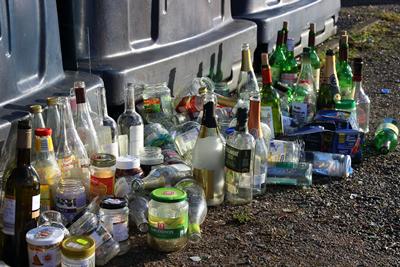Glass bottles shamed as worst fizzy drink container for the environment

Researchers at the University of Southampton have identified glass as the most environmentally impactful material for pressurised drink containers when considered across their whole life-cycle.
The new study, supervised by the School of Engineering’s Professor Ian Williams, urges society needs to move away from single-use drinks packaging in order to reduce environmental harm.
Glass bottles were ranked last in the analysis as they comparatively take the most resources and energy to produce. Recycled aluminium cans were the least environmentally damaging single-use container considered in the investigation.
The life-cycle assessment of drinks containers, conducted by Southampton postgraduate researcher Alice Brock, found many, more suitable alternatives to plastic bottles for pre-packaged drinks.
Professor Williams says: “Global plastic production has increased annually since World War II and is currently at least 380 million tonnes. Plastic drinks packaging is ubiquitous with over 13 billion plastic bottles used per year in the United Kingdom alone with global concern about pollution from plastics in the seas and the environmental costs of plastics manufacture is rising.
“We hope our study will help inform public and commercial debate over the suitability of some times of packaging that we all use in our daily lives and lead to swift and decisive changes in the drinks industry to find more environmentally-friendly alternatives as a matter of some urgency.”
The findings have been published in Detritus, the Journal for Waste Resources and Residues.